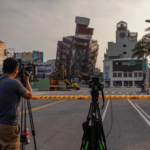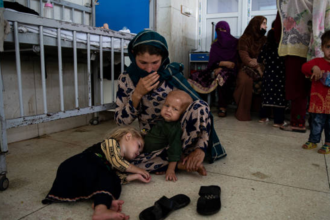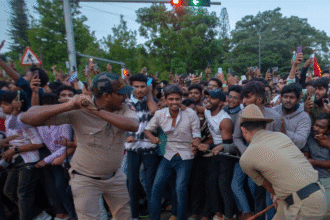A Deepening Divide
More than a year has gone since fatal ethnic conflicts shook India’s northeastern Manipur state, destroying houses and taking over 220 lives. Still, the more than three million Manipurans are firmly in uncertainty and conflict.
Last year, in May, the Meitei majority and the Kuki indigenous minority started fighting. It began with Kuki demonstrations against Meitei requests for official tribal designation, entitling them to affirmative action and other privileges. The later violence displaced tens of thousands; about 59,000 people currently live in government rescue camps. The once-cohesion neighborhoods have broken apart, and community links have been badly disrupted.
A fractured landscape
Manipur is blatantly split today. Meiteis dwell in the Imphal Valley, and Kukis populate the hill ranges around them. Security personnel guard the boundaries and buffer zones between the two areas. To guard their towns against supposed dangers, locals have taken up weapons—some of which were manufactured, others stolen from the military.
Federal and state leaders’ attempts at peace-broking have had no effect. Recent peace negotiations have fallen apart; one fell apart in a day. Still high is mistrust, and violence—including attacks on security staff—resounds.
“People have to feel confident about moving forward—and so, there needs to be some closure of the past—which makes the situation in Manipur very tense and full of suspicion. Not one has been recorded, claims a critic and author focused on northeastern areas of India.
Blame and Accusations
Both groups charge one another for starting the strife. Often cited as a leading cause of the instability by the Meitei population and the state administration is illegal immigration from surrounding Myanmar. The Kuki community, which has ethnic links to the Chins in Myanmar, contends that this story has been utilized to attack them inside their state unfairly.
“The state requires a full-fledged intervention: militarily to stop the bloodshed and psychologically to start discussions. Development of trust [between Kukis and Meiteis] is essential. One cannot build confidence in a day, said a political expert from Imphal, the state capital.
Life Between Conflict
About 60 km (37 miles) from Imphal, Sugnu hamlet clearly shows the effects of the fighting. Originally home to Meiteis and Kukis, the village still shows bloodshed marks. Kukis left burned and looted homes behind as she retreated to the hills. Locals worry about “outsiders” launching reprisals despite strict security. Now, guardians of village entrance points are Meitei women’s organizations called Meira Paibis.
Among the guards, Yumlembam Manitombi lost her 29-year-old son amid the bloodshed. The only breadwinner for the household, her son was the eldest of her three children. In their courtyard, they have erected a bust of him bearing an etching denoting Kuki-Meitei War 2023 as the cause of his death. “I yearn for quiet.” I only hope to see this conflict end; I search for nothing else. Ms. Manitombi adds.
Enduring Suffering
Similar security precautions are in place in Churachandpur, the Kuki-dominated core of the dispute. A “Wall of Remembrance” honors Kukis lost in the bloodshed. Now living on odd jobs, Boinu Haokip and her family left Sugnu for Churachandpur. “I have a family to look after and schoolwork to do. For years, our civilization was impoverished. We had started getting out of it, but this violence has driven us back at least a decade, she laments.
People have lost companies, property, and employment as schools become temporary camps, draining their finances. Some have fled to camps nearby Mizoram, where food, water, and medication shortages occur. 52-year-old Nengnei Chong left with her two boys and now lives in a relief camp outside of Aizawl, regrets leaving. “It would have been better had we, too, died back home,” she remarks.
Obstacles in Politics
Accusations target federal administrations and the Bharatiya Janata Party-run Manipur for not acting to stop the bloodshed. The government dismisses Kuki organizations’ allegations that state authorities disregard violence by Meiteis for political advantage. With the Congress party often criticizing Prime Minister Narendra Modi’s absence from Manipur, opposition parties attack the federal government for allowing the violence to worsen.
“Our administration is working hard to restore Manipur to normal. Mostly everywhere, workplaces, colleges, and schools have opened and are running. Mr. Modi remarked in Parliament recently, “There is obvious hope for peace.”
Experts contend that hostility between the two groups has intensified as Kukis desire a “separate administration,” something the Meiteis vehemently object to. “Building peace is a challenging and agonizing task. One finds it more straightforward to engage in violence than to foster peace. An observer notes that if the center [federal government] can bring all sides to the table, it will be on the right path. He warns that healing takes time and patience before any significant advancement can be attained.








